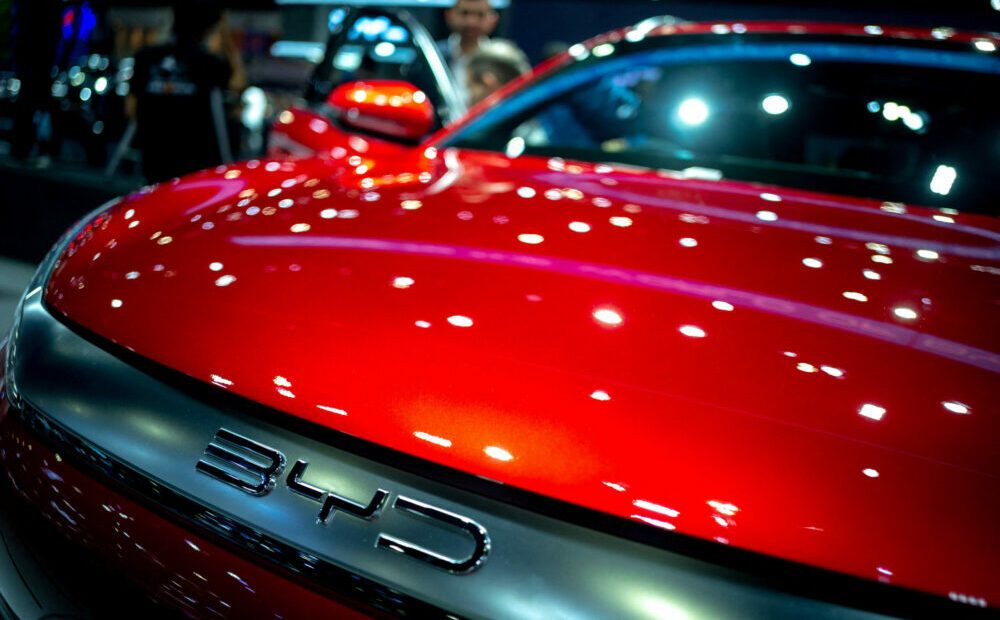Still, it could hurt perceptions of Chinese EV makers as they expand abroad, Bernstein analysts said in a client note.
The manufacturers have been accelerating export efforts as slowing consumer demand in China exacerbates production overcapacity.
“Although Europe is still a small piece of Chinese (EV makers’) overseas exposure…it is the biggest EV market outside China and any trade restrictions will be negative for sentiment,” the Bernstein analysts said.
Hong Kong-listed shares of market leader BYD fell more than 3%. Smaller rivals Xpeng and Geely Auto dropped 0.6%, while Nio slid 2%.
Shanghai-listed shares of state-owned car giant SAIC , whose MG brand is the best-selling Chinese-made brand in Europe, fell as much as 3.4%.
Nio and Geely declined to comment on the EU probe, while BYD, Xpeng and SAIC did not respond to requests for comment.
The Shenzhen-listed shares of battery maker CATL fell more than 1%. CATL did not respond immediately to a request for comment.
Strained Relations
The anti-subsidy probe, initiated by the European Commission and not from any industry complaint, is set to further irritate an already strained relationship with China.
Ties have become tense due to Beijing’s ties with Moscow after Russian forces swept into Ukraine, and the EU push to rely less on the world’s second-largest economy and also its No.1 trading partner.
In his meeting with von der Leyen on the sidelines of the G20 Summit in New Delhi on Saturday, Chinese Premier Li Qiang urged the bloc to provide a non-discriminatory environment for Chinese firms and urged stability in Sino-EU relations as a “hedge” against global uncertainties.
The EV probe will set the agenda and tone for bilateral talks ahead of the annual China-EU Summit, set to take place before year-end, with a focus returning to EU demands for wider access to the Chinese market and a rebalance of a trade relationship that Brussels describes as “imbalanced”.
Beijing has yet to respond to the investigation, but the Chinese Chamber of Commerce to the EU hit back at the move, saying it was opposed to the probe and that the sector’s competitive advantage was not due to subsidies.
Cui Dongshu, the secretary general of the China Passenger Car Association, said on his personal WeChat account that he was personally “strongly against” the review and urged the EU to take an objective view of the industry’s development and not “arbitrarily use” economic or trade tools.
The price of China-made cars exported to Europe is generally almost double the price they sell for in China, he added.
Growing Market Share
EU officials believe Chinese EVs are undercutting the prices of local models by about 20% in the European market, piling pressure on European automakers to produce lower-cost electric vehicles.
The European Commission said China’s share of EVs sold in Europe has risen to 8% and could reach 15% in 2025.
In 2022, 35% of all exported electric cars originated from China, 10 percentage points higher than the previous year, according to U.S. think-tank Center for Strategic and Internal Studies (CSIS).
Most of the vehicles, and the batteries they are powered with, were destined for Europe where 16% of batteries and vehicles sold were made in China in 2022, it said.
The single largest exporter from China is U.S. giant Tesla, CSIS data showed. It accounted for 40.25% of EV exports from China between January and April 2023, up from 36.5% in 2022.
Reuters



